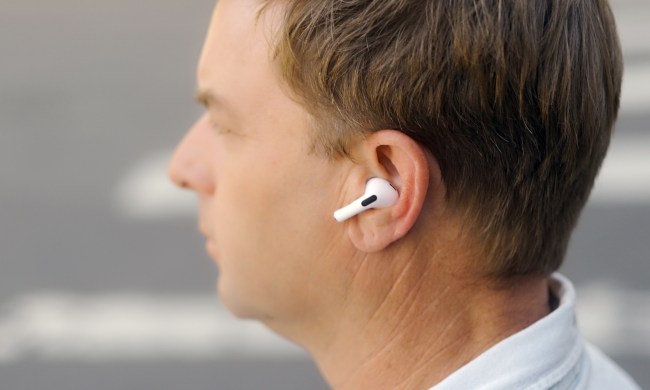Guess what Canada, France, Spain, China, the United Kingdom, Mexico, and 100 other countries have in common? None are able to take advantage of the Apple AirPods Pro 2 ‘s best new hearing health features.
Sitting in my home office in Toronto, I learned this the hard way: After upgrading my iPhone and AirPods Pro 2 to the latest software this week, I was offered the hearing protection feature, but I still couldn’t see the hearing test and hearing aid options slated to arrive with iOS 18.1 .
When Apple announced these AirPod Pro 2 features , I had a feeling that something like this might happen. “Apple is still waiting on clearance from the Food and Drug Administration (FDA) and other regulators,” we noted, “but after that the AirPods Pro should serve as a more proper hearing aid.” Apple eventually received FDA clearance (and approvals from regulators in 103 other countries ), but authorities in other major markets have yet to rubber-stamp Apple’s hearing health claims.
Part of the reason could simply be resource-based. For some jurisdictions, the FDA’s green light is considered sufficient as proof of efficacy and safety. In countries that prefer to test product claims independently, it can take time for the necessary evaluations.

The case of the AirPods Pro is further complicated by Apple positioning of the device, with its new powers, as an over-the-counter (OTC) hearing aid. The OTC hearing aid category (which is intended for those with “mild to moderate” hearing loss) is relatively new in the U.S. The FDA approved it in 2022, but many countries, Canada included, do not recognize this class of medical device.
In fact, in some Canadian provinces, like Ontario, where I live, it’s illegal for someone to sell you any kind of hearing aid without a prescription from an authorized medical professional .
Canada is widely expected to follow the United States’ lead on OTC hearing aids, but Health Canada (the Canadian FDA equivalent) hasn’t said when or if that will happen.
Given the regulatory frameworks, it’s entirely understandable that Apple has withheld the hearing test and hearing aid options in countries like Canada. It certainly can’t market the AirPods Pro as OTC hearing aids if doing so would place the company in legal jeopardy.
And normally, I’m very much in favor of this approach. When implemented with the necessary checks and balances, regulations can act as an independent verification of health claims, while also reducing the likelihood of harm. However, the AirPods Pro are already owned by millions of people. It should be possible for those in Canada and elsewhere to try the hearing health features on a provisional basis — with the understanding that their country’s respective regulator hasn’t verified or approved the use of the wireless earbuds for these purposes.
In preparation for what I assumed would be an opportunity to try the new features, I had my annual hearing test on October 22. I don’t see why I can’t at least try Apple’s hearing test to see how closely the two results match.
Alas, that’s not going to happen anytime soon. It’s possible that if you live in one of the regions that doesn’t have access yet, you may be able to get around the restriction by changing the country associated to your Apple ID , but that’s not a recommendation — in fact, it can come with a whole host of headaches you probably want to avoid.




